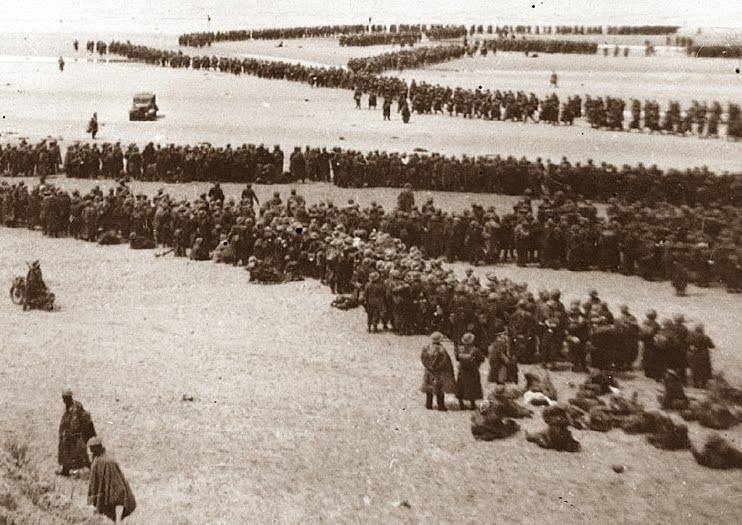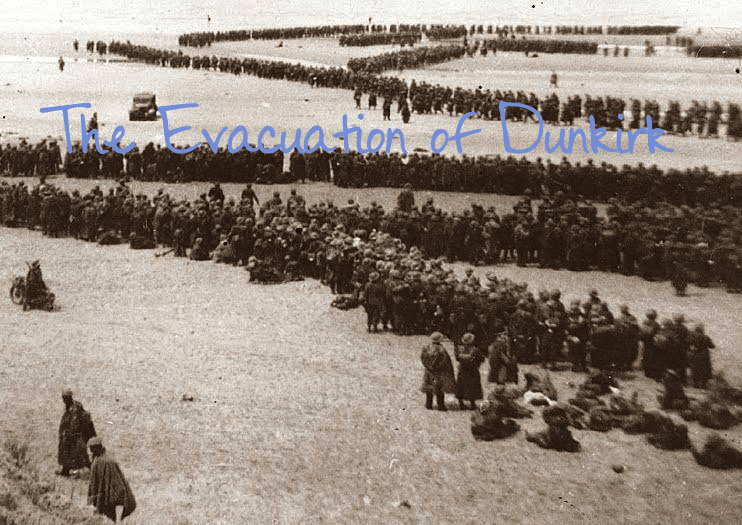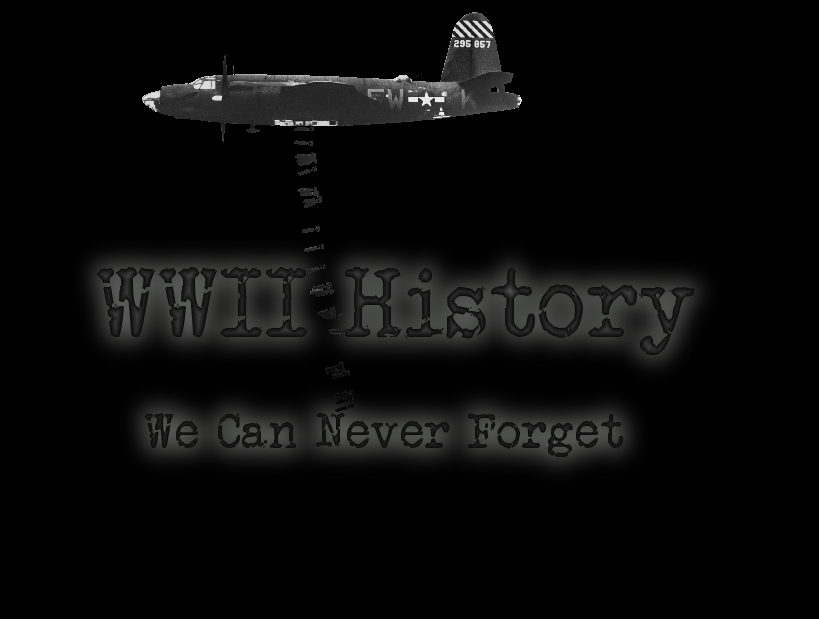The Evacuation of Dunkirk
“So long as the English tongue survives, the word Dunkirk will be spoken with reverence. In that harbour, such a hell on earth as never blazed before, at the end of a lost battle, the rags and blemishes that had hidden the soul of democracy fell away. There, beaten but unconquered, in shining splendour, she faced the enemy, this shining thing in the souls of free men, which Hitler cannot command. It is in the great tradition of democracy. It is a future. It is victory.” ~ New York Times, 1 June 1940
“For us Germans the word “Dunkirchen” will stand for all time for victory in the greatest battle of annihilation in history. But, for the British and French who were there, it will remind them for the rest of their lives of a defeat that was heavier than any army had ever suffered before.” ~ Der Adler, 5 June 1940 (Source)
The Battle of Dunkirk. The Dunkirk Evacuation. Code Name: Operation Dynamo.
After declaring war on Germany, Britain sent the British Expeditionary Force (BEF) to help defend France. The problem, though, was that while France had the Maginot Line between them and Germany, they stupidly believed that the Ardennes forest was “impenetrable.”
So what did Germany do?
On May 10, 1940, the German army attacked Belgium, Holland, Luxembourg. Fighting continued for four days until the Allies were forced to push back when France and Belgium positions failed to hold.
On May 12, though, Germany entered France through none other than the Ardennes forest.
“The Germans advanced in an arc westward from the Ardennes in Belgium, along France’s Somme River, and to the English Channel, cutting off communication between the Allies’ northern and southern forces” (Source). The Allies were quickly finding themselves surrounded and trapped against the northern coast of France. By the 19th, British commander, General Viscount John Gort, was considering a BEF withdrawal by sea. However, the Allies decided to launch a counterattack on the 21st. By the 24th, German army commander in chief, Walther von Brauchitsh was ready to take Dunkirk. It was actually Hitler who prevented the attack, having been convinced by Hermann Göring that the Luftwaffe “could destroy the Allied forces trapped on the beaches of Dunkirk” (Source).
Evacuation Dynamo was initiated on May 26th. They expected to have 48 hours to evacuate what they hoped would be 45,000 troops. However, the following day, King Leopold III of Belgium surrendered to Germany. As a result, Germany “resumed the land attack on Dunkirk” (Source). The break in fighting had allowed Britain to fortify their defenses, but they did not last long under advancing Germans. “As there were not enough ships to transport the huge masses of men stranded at Dunkirk, the British Admiralty called on all British citizens in possession of sea-worthy vessels to lend their ships to the effort. Fishing boats, pleasure yachts, lifeboats, and other civilian ships raced to Dunkirk, braving mines, bombs, and torpedoes” (Source). Some 933 ships took part.
Between the Luftwaffe and the counterattacks (some 3,500 missions) from the RAF, the Dunkirk harbor was beyond use. “Small civilian vessels had to ferry the soldiers from the beaches to the warships waiting at sea. But for nine days, the evacuation continued, a miracle to the Allied commanders who had expected disaster” (Source).
The battle ended on June 4, with the German army closing in. “With Western Europe abandoned by its main defenders, the German army swept through the rest of France, and Paris fell on June 14” (Source). On May 22, the armistice at Compiegne was signed by Henri Petain. “Germany annexed half the country, leaving the other half in the hands of their puppet French rulers” (Source).
“The inability for the German army to move on the survivors of Dunkirk is noted by many historians as one of the most critical mistakes Hitler made, one that that Rundstedt even called ‘one of the great turning points of the war’” (Source).
Casualties & Losses:
British: 198,000 troops were rescued; 68,000 dead, even more ended up MIA or as POWs. French: 140,000 troops were rescued; 290,000 dead. Germans: 27,074 dead; 111,034 wounded. Additionally, Britain lost some six destroyers, five minesweepers, eight transport ships, and a further 200 vessels had been sunk or badly damaged. They also left behind hundreds of thousands of guns, vehicles, and ammunition in what was now German territory.
[Below: Troops awaiting evacuation.]

“Soldiers of the West Front! Dunkirk has fallen … with it has ended the greatest battle in world history. Soldiers! My confidence in you knows no bounds. You have not disappointed me” (Source). ~ Hitler, June W5, 1940
Back home, Prime Minister Churchill was equally as pleased with his own troops. Praising and warning his people: “We must be very careful not to assign to this the attributes of a victory. Wars are not won by evacuations” (Source).
The bulk of the British army had been rescued. This meant that Britain still had hope. A number of miracles and extraordinary factors helped make it possible. “The decision of Gort (the commander of the BEF) to ignore Churchill and the French commanders and head to the coast, the halt order, the weather, the survival of the Eastern Mole (the pier from which the majority of troops were evacuated), and the incredible determination of the Royal Navy, all combined to save the BEF” (Source).
Had the evacuation been unsuccessful, with a quarter of a million British troops held in captivity, Churchill would not have much other choice but to surrender – and sign Hitler’s peace treaty, as France had done. Had the evacuation been unsuccessful, the German army would have been left with additional provisions on their side, “including the 40 divisions which Britain’s continued hostility required in Africa and on the Atlantic Wall, as well as the 1,882 aircraft, and their experienced pilots and bomber crews, which were lost over Britain in the coming months” (Source).
“Hitler never wished to enter into war with Britain. He admired the country whose Empire he believed powerfully reinforced his ideas of racial domination, commenting that ‘To maintain their Empire they need a strong continental power at their side. Only Germany can be that power.’ After Dunkirk, however, he was stunned to find that his ‘sensible peace arrangements’ were continuously and categorically rejected. Even as late as 6 July, Hitler insisted that the invasion of Britain would only be tried as a last resort ‘if it cannot be made to sue for peace any other way’” (Source).
Dunkirk aroused America’s sentiment and caused them to realize the importance of aiding Britain. “It is a matter of inestimable importance to our own security that we should instantly remove all restrictions on the rendering of realistic, material aid to the Allies,” the Washington Evening Star declared (Source). By mid-June, America shipped roughly half a million rifles to their aid. The American support boosted both countries’ resolved and Churchill promised that “Britain would preserve ‘the whole world, including the United States’ from sinking ‘into the abyss of a new Dark Age’” (Source).
In June of 1940, Britain stood alone against Germany, Italy, & the Soviet Union.
[Below: Operation Dynamo]


